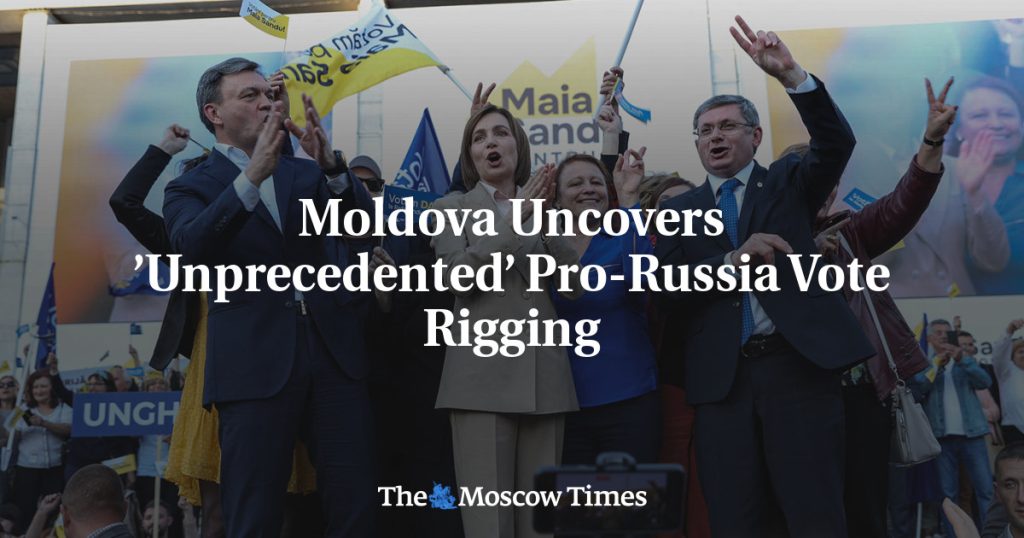Moldovan police carried out multiple raids after discovering that $15 million was transferred from Russia to Moldovan citizens in an effort to influence the upcoming presidential elections. President Maia Sandu has accused Russia of political interference in the country, which borders Ukraine and Romania. The money was funneled into Moldova by people affiliated with Ilan Shor, a businessman and former politician. Police believe over 100,000 people were involved in the vote-buying scheme, with the objective of disrupting the electoral process.
The individuals affiliated with Ilan Shor’s “criminal organization” recruited 70,000 supporters to vote for a specific candidate in exchange for money. Voters were also instructed to reject joining the European Union in a referendum scheduled for the same day as the presidential elections. Shor, who was convicted of fraud last year, maintained that all payments were legal. He referred to Moldova as a police state and called on his supporters to continue fighting together. In April, Shor announced the establishment of a political coalition called “Victory” from Moscow, but the electoral commission refused to register the bloc for the elections due to non-compliance issues.
On top of the $15 million transferred for the vote-buying scheme, Moldovan police also seized around $1 million in illegal political financing from individuals returning from a gathering in April. Furthermore, in June, the United States, Britain, and Canada issued a warning about a Russian plot to influence Moldova’s elections and incite protests if a pro-Russian candidate did not win. The situation highlights the ongoing concerns about foreign interference in Moldova’s political processes and the potential impact on the country’s democratic institutions.
The police chief, Viorel Cernauteanu, described the vote-buying scheme as unprecedented and large-scale, designed to disrupt the electoral process. The involvement of a significant number of Moldovan citizens in such activities raises questions about the integrity of the upcoming elections and the ability of the authorities to prevent external interference. President Sandu’s pro-European stance has put her at odds with Russia, which has been accused of meddling in Moldova’s internal affairs in the past.
The money transferred from Russia was reportedly used to recruit voters to support a specific candidate and reject joining the European Union in a referendum. The influence of external actors in Moldova’s political processes raises concerns about the country’s sovereignty and ability to make independent decisions. The situation also underscores the challenges faced by Moldova’s law enforcement agencies in combating illicit financial activities and preventing foreign interference in the electoral process.
The discovery of the $15 million transfer from Russia and subsequent police raids highlight the ongoing struggle to maintain the integrity of Moldova’s democratic processes and prevent external interference. The involvement of a large number of citizens in a vote-buying scheme orchestrated by individuals affiliated with a convicted fraudster raises questions about the effectiveness of the country’s electoral system and the ability of law enforcement agencies to prevent such activities. The upcoming presidential elections will be closely monitored, amidst concerns about foreign interference and efforts to subvert the democratic process in Moldova.















